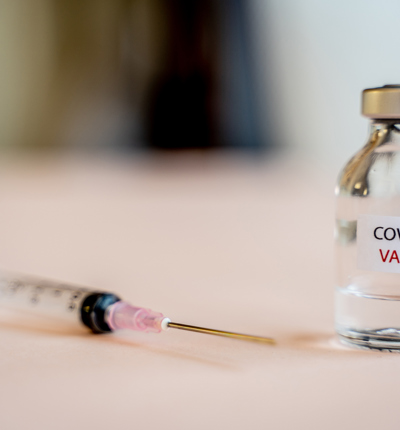
Vaccines on Trial
With the number of people opting out of taking potentially life-saving vaccines on the rise, Gene Matthews looks at the process for their approval and how some have become the subject of unfortunate controversy.
Posted on 10 April 2019
When a new virus emerges or an outbreak of a virus occurs it can be a frightening time (as recent outbreaks of the Ebola and Zika virus demonstrate) and researchers face the unenviable challenge of finding an effective vaccine as quickly as possible.
When a vaccine is discovered it is undoubtedly a good thing, but with the number of people who oppose vaccines (sometimes known as “anti-vaxxers”) on the rise vaccines are now being seen by some as a dangerous threat, rather than a potentially life-saving cure. The Guardian reported in January 2019 that a staggering 50% of all parents with small children had been exposed to misinformation about vaccines on social media.
In light of the increase in the amount of anti-vaccine material out there, we look at how vaccines are made and how they work.
Essentially the virus, which causes the disease, is replicated in a lab setting and then altered so that, when administered, it doesn’t actually trigger the disease itself. It works by making the body produce antibodies to fight the disease, but, importantly, does not infect us with the disease itself.
The Association of the British Pharmaceutical Industry (ABPI) website outlines that developing vaccines is a complex and costly process. On average over 10 years of research and development goes in to developing just one successful vaccine. Even with years of research evidencing its effectiveness it can still take time to obtain regulatory approval for a new vaccine and the cost can range anywhere from £374m-£1.5bn GBP. Producing vaccines takes time, money and effort and is not done lightly.
At the regulatory stage companies must demonstrate to the authorities that a vaccine is safe, effective and always of the same high quality (a difficult and onerous task). In addition, clinical studies (phases I to III) are conducted, with 1000s of participants taking part, to test the vaccine.
During Phase I clinical studies the vaccine will be tested for the first time in humans. This stage tests the overall safety and tolerability of the vaccine and, usually, it is tested on a small group of healthy volunteers.
If the vaccine passes Phase I, the Phase II trial can be conducted. Phase II studies usually involve more participants and tests for potential side effects to the vaccine. It helps researchers to calculate the correct dosage and essentially ensures it has the intended benefit. Phase III trials usually last longer again, involve even more participants and test for any rare or long term side effects.
It is important to note that, even after the vaccine’s safety and effectiveness has been established in trials and marketing authorisation has been granted, there are systems in place so that adverse events and reactions can be reported.
In spite of these strict processes, and the fact that many vaccines have been used for decades, there are still some people who push an anti-vaccine message. The societal importance of herd immunity is being forgotten with potential devastating health implications for us all.
A shocking example of the impact that anti-vaccination views have had is that an increasing number of people are refusing the measles vaccination. As reported in the Guardian, head of NHS England, Simon Stevens, stated that this has led to the number of measles cases across England more than tripling in 2018 alone. The World Health Organization (WHO) also reported a 50% increase in the number of measles cases in 2018.
This is despite the fact that we celebrated 50 years of the measles vaccine in 2018 and since its introduction it is estimated to have prevented 20 million cases of measles and 4,500 fatalities. This stresses the importance of achieving the WHO’s MMR (measles, mumps and rubella) vaccination target.
Another example is the HPV (human papillomavirus) vaccine, which has so dramatically reduced the instances of cervical cancer (by protecting against the virus that causes most cases) that research has indicated that cervical cancer could effectively be eliminated in most countries by the end of the 21st century. The disease kills more than 300,000 women globally every year and yet there are still some who refuse the vaccine (citing a fear of side effects and, in some cases, on the basis of the stigma attached to the vaccine because HPV is a sexually transmitted virus).
Much is being done to reassure and educate people about the vast benefits of vaccines and hopefully this important work will continue and terrible diseases, such as cervical cancer, may become a thing of the past.


